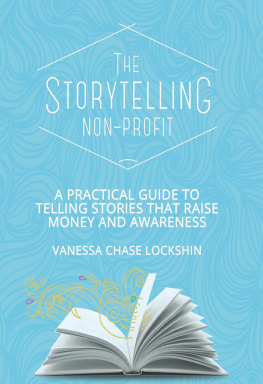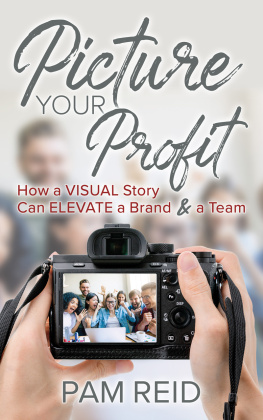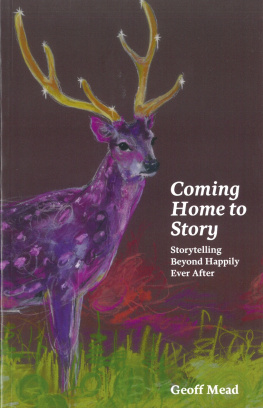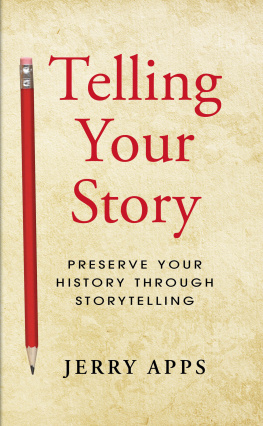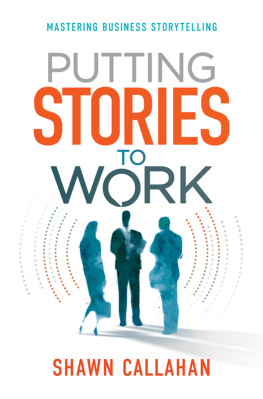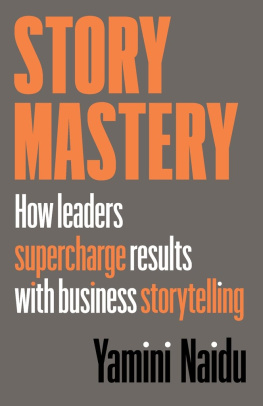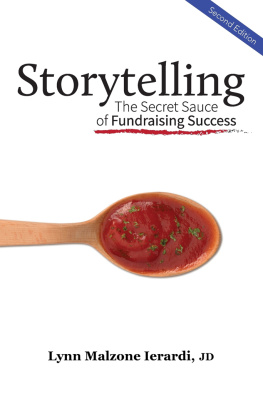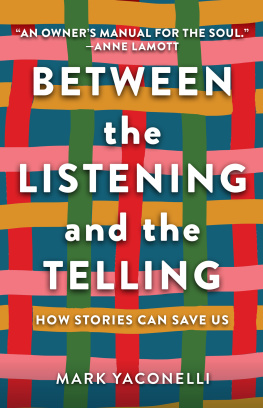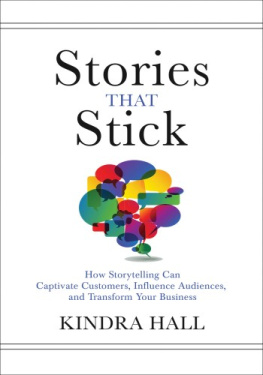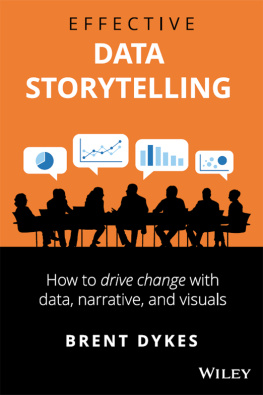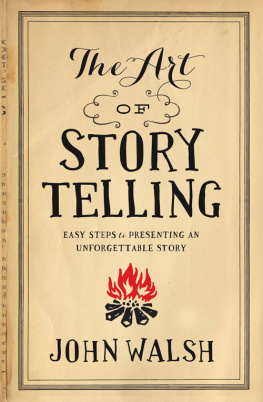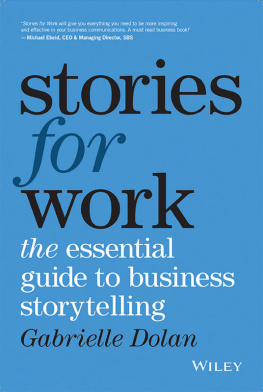The Storytelling Non-Profit
A practical guide to telling stories that raise money
and awareness
Vanessa Chase Lockshin
The Storytelling Non-Profit
By Vanessa Chase Lockshin
Copyright 2016 Lockshin Consulting Inc
All rights reserves. No part of this book shall be reproduced, stored in a retrieval system, or transmitted by any means electronic, mechanical, photocopying, recording or otherwise without written permission from the publisher. Although ever precaution has been taken in the preparation of this book, the publisher and author assume no responsibility for errors or omissions, or for damages resulting in the use of the information contained herein.
ISBN: 978-0-9950893-0-3
Cover Design and Book Layout by: On Purpose Projects
Book Production: On Purpose Projects
Book editing: Constance Renfrow
Bulk Sales
If you would like to place a bulk order for this book for your association, conference or group, please send an email to
This book is dedicated to Matt Lockshin my love who continuously teaches me about the importance of owning my story. Matt, you inspire me every day.
To all the amazing non-profit professionals who read my blog, subscribe to my weekly newsletter, and attend my webinars and workshops thank you for your support and encouragement! I have such admiration for the work you do and I am honored to support you.
A special thank you to all of the non-profit organizations and professionals who are featured throughout this book. Thank you for generously sharing your examples and expertise.
Table of Contents
Chapter 1
Introduction
Chapter 2
Connection
Chapter 3
Character
Chapter 4
Conflict
Chapter 5
Resolution
Chapter 6
Creating a Storytelling Plan
Chapter 7
Finding Stories to Tell
Chapter 8
Developing the Story
Chapter 9
Sharing Stories
Chapter 10
Onward to Storytelling Success
Great stories happen to those who can tell them.
-Ira Glass
Chapter 1
Introduction

I have been immersed in the world of storytelling since I was six years old. That was the year I started writing in journals. Now many years later, I prolifically share stories in both my personal and my professional life. At home and among friends I bravely share personal stories, which at one point in my life would have felt very uncomfortable to do. Professionally, I am a non-profit fundraiser and communicator, and I firmly believe storytelling is the non-profit sectors way forward. Im fascinated by the role stories play in non-profit work, and Im committed to discovering new ways to teach people to be better storytellers. Despite all of the research and all of the work that I've done over the years, my big revelation about storytelling came from one moment in March 2014.
I was working with an organization that provides counseling, coaching, and resource referrals to cancer patients and their loved ones. Among other things, I was working on their case for supporta document that outlines what the organization needs money for and why that cause is important. I had done my initial research and conducted interviews before I started writing, and I was feeling confident that there was a strong case to be made for the work they were doing. But then the day came when I finally sat down at my computer to start writing. As with all my projects, I began the writing process by thinking about what emotion I wanted the reader to feel. But heres the thing: Id never personally been affected by cancer, nor had anyone close to me. I counted my blessings, of course, but in that moment, I had a flash of panic. I thought, I dont actually know what this experience is like. How will I do justice to these patients and their loved ones?
Several hours of anxiety and writers block ensued, until I finally gathered the courage to call the organization. I called one of the social workers I had interviewed earlier and asked her, What kind of cases have you been seeing lately?
She explained to me that, at that time, she would commonly get calls from people whose parents had been diagnosed with cancer. The parent had either elected to stop treatment or to enter a hospice, and because of this, the caller was having a hard time accepting his/her parents choice. The person wanted help convincing his/her parent to make a different choiceto fight the fight. But as the social worker explained to me, its not her job, nor the job of the organization to persuade patients to pursue any one treatment. They believe everyone has the right to do whats best for themeven if that means dying.
As she explained in greater detail, it dawned on me that these people all have one thing in common when they make these calls: they feel helpless. They would go to the ends of the earth to save their dying parent, but there is nothing they can do. Theyre facing their parents mortality and it scares and saddens them.
When I identified the emotions these family members are feeling when they call, I realized that I too am well acquainted with that emotion.
My mom was diagnosed with Multiple Sclerosis when I was twelve. Her vision is blurred in one of her eyes and on several occasions has had terrible relapses of symptoms. As a child and as an adult, I have seen her suffer. I have seen the agony the disease causes her, the depression that sometimes comes, and the ever-present knowledge that while MS wont kill her, it will slowly steal her quality of life.
MS affects the brain, and during those times when Ive felt helpless, Ive wished I could give my mom a part of my brain if only it would save her from this suffering. But it wouldnt save her, and I know there is nothing I can do.
The reason Im telling you this story is because it so beautifully illustrates how we can feel empathy for others. Although I have never been affected by cancer, I know all too well the feeling of helplessness. When I was able to identify how I personally could relate to the people this organization helps and through then empathizing with them, it became easier for me to write about their experience and tell their story. In turn, readers and donors were hopefully better able to understood the value and importance of the organizations work.
Similarly, when you tell a story to your donors, you invite them to connect with you in a deeper way. You invite your donors to have an emotional experience. By telling your donors stories and highlighting a universally experienced emotion, value, or belief, you can help them feel like they belong to a communityyour community.
The Whole Point of Storytelling
Your donors may not be current or former clients. They may not know exactly what it's like to benefit from your organizations work. They may not have been affected by cancer, overcome extreme poverty, raised a child with a developmental disability, or any number of causes that non-profits serve.
But by telling stories, we can connect donors to the emotional experiences associated with the issues our organizations are trying to solve, and emotions are the gateway to deep, meaningful relationships with donors.
At first glance, you might think youre telling stories to donors so they will understand your organization or to get them to donate more money. However, if you peel back the layers, non-profit storytelling is really about making your donors feel connected to something bigger than themselves.
In this regard, our relationships with our donors are a bit backwards. We often focus on negating reasons donors may leave our organizations, such as the following:
Next page
